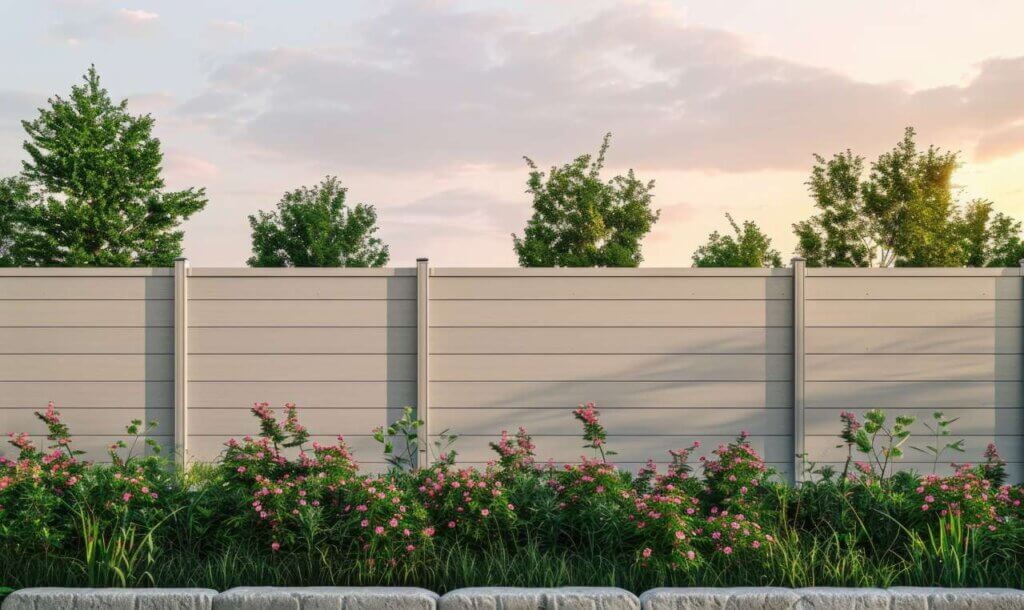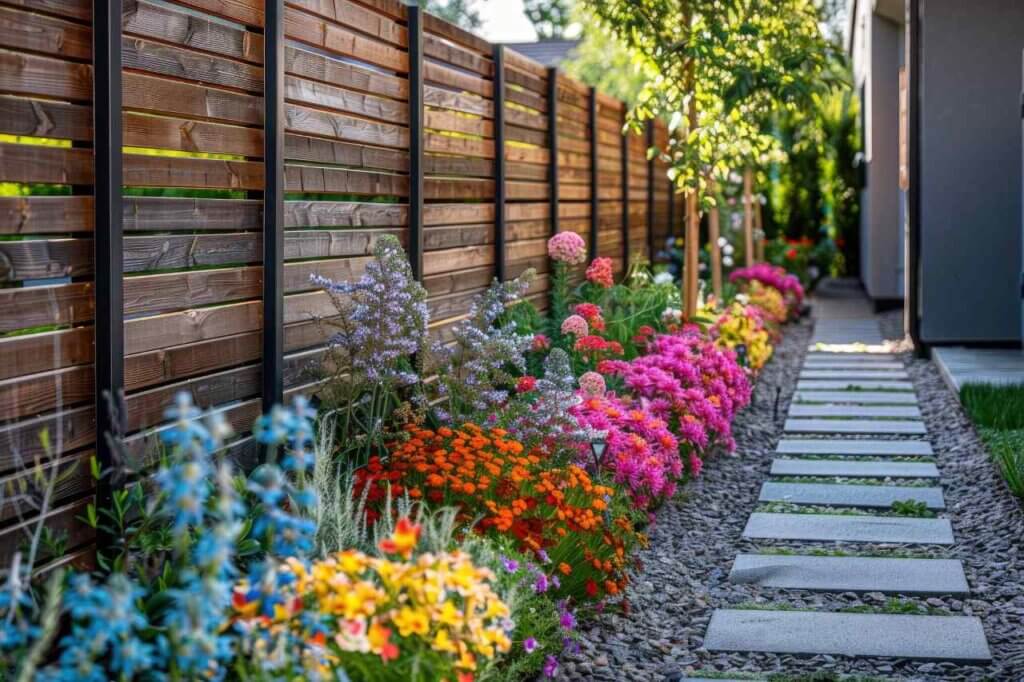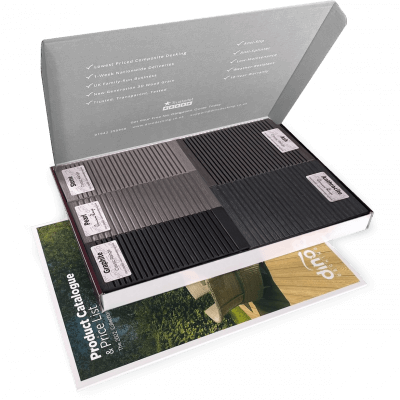5 Composite Decking Lighting Ideas
Our composite decking looks great in any setting, but you can really make your outdoor spaces shine with our decking
Products in Stock
Lowest Prices
Express Delivery
10-Year Warranty
Early April Sale. Up To 15% Off.

When it comes to fencing solutions, modular fencing is gaining popularity for its practicality and sleek design. But is it the right choice for your property? Like any option, modular fencing comes with its benefits and drawbacks, so it’s worth weighing them carefully before making a decision.
Modular fencing is a versatile fencing system made up of pre-fabricated panels or sections that are easy to assemble. This design allows you to customise the layout and appearance of your fence without needing a lot of specialised tools or expertise.
Unlike traditional fencing, which often requires on-site cutting and assembly, modular systems are designed for efficiency. With options ranging from wood to metal and composite materials, there’s a modular fencing style to suit most properties.
There are plenty of reasons why modular fencing is a popular choice for homeowners and businesses alike. Let’s explore its key benefits.
One of the biggest selling points of modular fencing is how simple it is to install. The panels come ready to fit, reducing the time and effort required compared to traditional fencing. If you’re looking to install it yourself, modular fencing is one of the most DIY-friendly options available.
Modular fencing allows you to create a design that matches your specific needs and style. Whether you’re after a modern look or something more traditional, the ability to mix and match components makes this system highly adaptable.
While the upfront cost of modular fencing can vary, it’s often more affordable in the long run. The ease of installation can save on labour costs, and since repairs usually only require replacing individual panels, ongoing maintenance is more manageable.
Many modular fencing options, particularly those made from composite materials, are designed to withstand the elements with minimal upkeep. Unlike wood, which may need regular treatments, composite panels require only the occasional clean to stay looking fresh.
High-quality modular fencing materials, like premium composite fencing material, are built to last. Composite fencing, in particular, is resistant to rot, warping, and pests, making it a solid investment for your property.
While modular fencing has plenty of advantages, there are some potential drawbacks to consider.
The upfront cost of modular fencing can be higher than traditional options, especially if you opt for high-end materials. However, this is often offset by lower maintenance and repair costs over time.
Although modular fencing is flexible, it might not suit every aesthetic. If you’re after a very specific or intricate design, traditional bespoke fencing might be a better fit.
Depending on the material and style, some modular fences may not provide complete privacy. Designs with gaps or thinner panels might not block out noise or prying eyes as effectively as solid options.
As with any product, quality matters. Low-grade materials can compromise the durability and longevity of modular fencing. Choosing reliable options, such as premium composite fencing material, ensures you’re making a long-term investment.
While modular fencing is easy to install, incorrect assembly can lead to issues with stability and performance. If you’re unsure about your DIY skills, hiring a professional may be the best way to ensure a secure and lasting result.

When it comes to the different types of fence for your home, the material you choose for modular fencing will significantly impact its appearance, durability, and maintenance needs:
Composite fencing is a top choice for modular systems due to its combination of strength and low maintenance. Made from a mix of wood fibres and recycled plastics, it offers the look of wood without the upkeep. If you want a modern, durable solution, premium composite fencing material is worth considering.
Wood is a classic option that works well in modular systems. While it offers a natural aesthetic, it requires regular care to protect against rot and weathering.
For a sleek and industrial look, metal modular fencing is a fantastic option. It’s durable and weather-resistant but can be prone to rust if not properly treated.
Not all modular fencing is created equal, so it’s important to choose a system that meets your specific needs.
Think about both the initial cost and long-term expenses. Composite fencing may cost more upfront, but its durability and minimal maintenance can make it a cost-effective choice over time.
Are you prioritising privacy, security, or aesthetics? Your primary goals will help determine the best fencing material and design for your needs.
Each material has its own pros and cons, so take the time to research which one fits your lifestyle and preferences. For example, composite fencing is ideal for those looking for low-maintenance, eco-friendly options.
Before installing your modular fence, check if there are any restrictions or guidelines in your area. This ensures your new fence meets height and design requirements.
Modular fencing is an excellent choice for those seeking a flexible, easy-to-install, and stylish fencing solution. Whether you’re drawn to the durability of composite, the classic charm of wood, or the sleekness of metal, there’s a modular option to suit your property.

Our sample pack contains a sample piece of each colour currently available. Order your free sample pack today to compare the colours and get a true feeling of the Dino Decking range!
Our composite decking looks great in any setting, but you can really make your outdoor spaces shine with our decking
If the idea of having rats under your decking makes you shiver, don’t worry. We’ll let you know the signs
Business hours
Monday: 09:00 – 17:30
Tuesday: 09:00 – 17:30
Wednesday: 09:00 – 17:30
Thursday: 09:00 – 17:30
Friday: 09:00 – 17:30
Saturday: Closed
Sunday: Closed
Contact us
01942 355968
support@dino.co.uk
Collection Address: Unit 1 Wetheral Close Hindley Ind Estate Wigan Greater Manchester North West WN2 4HS
Pages
Products
Testing
Copyright 2025 Dino Decking Ltd All Rights Reserved.
VAT Number: GB296097848.
Company Number: 10837233.